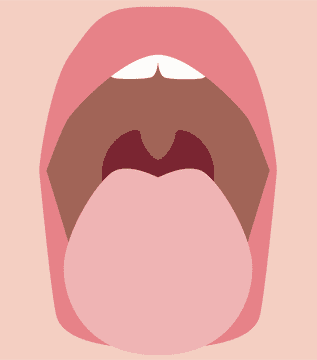
Article
Case Study: Capturing Quality Images for ML Algorithm
Ten years ago this month, Marc Andreessen published a now-legendary op-ed in the Wall Street Journal that seemed audacious to some readers and visionary to many others. In that commentary, headlined “Why Software Is Eating The World,” he succinctly forecasts one of the most-consequential changes in recent human history: the transformational integration of software into almost every facet of our lives.
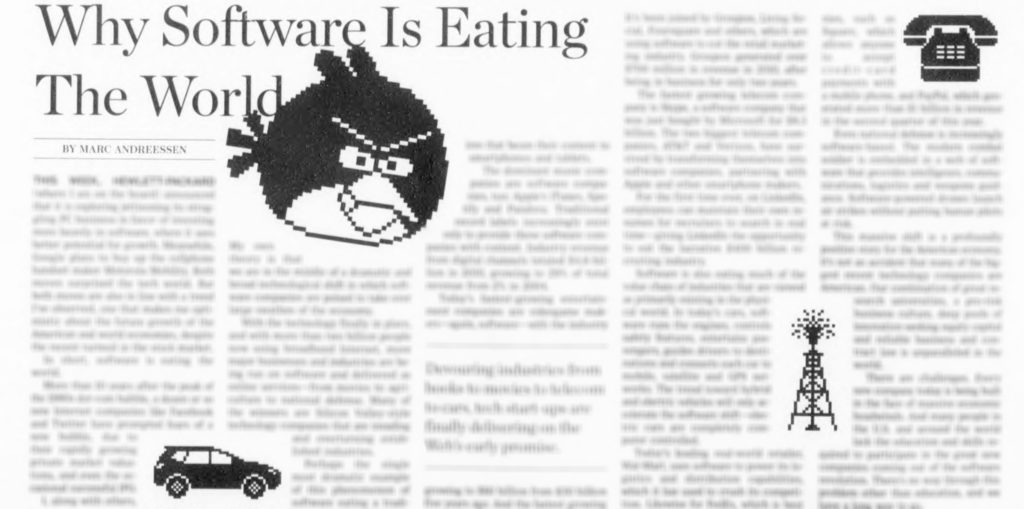
“Companies in every industry,” he wrote, “need to assume that a software revolution is coming.”
At the time this article was written, I was squarely in the group of readers that felt Andreesen’s 2,180-word piece was visionary. (Andreessen is the co-founder and general partner of the venture capital firm Andreessen Horowitz; more pointedly, as one of the developers behind Mosaic and Netscape, he helped create the modern visual Internet.)
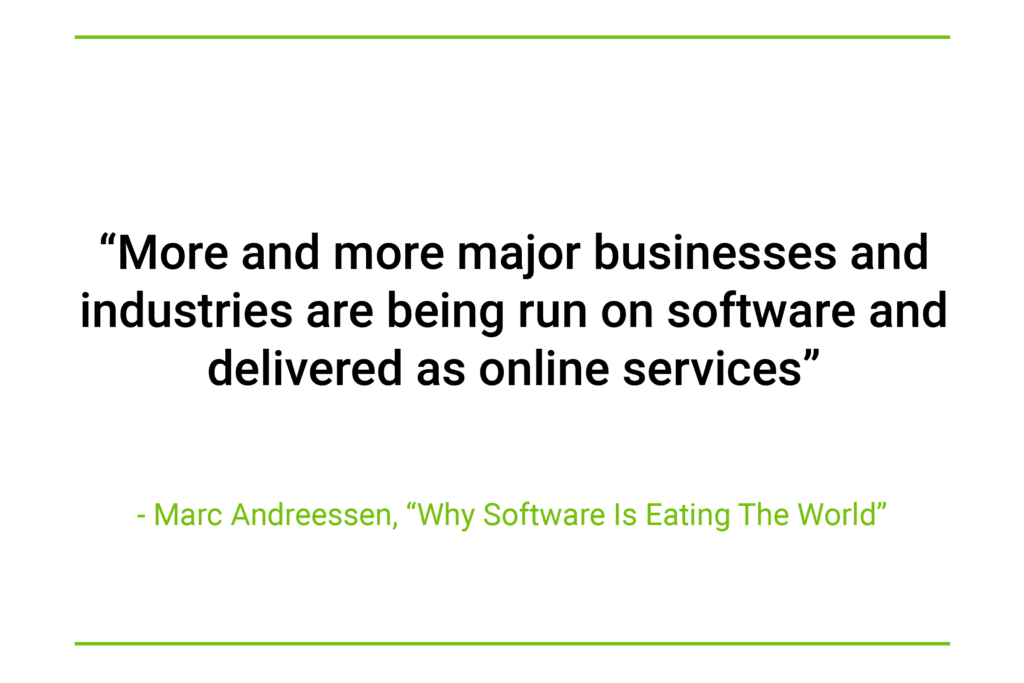
The notion that software would – and should – become a game-changer across industries was exciting, thought-provoking and seductive (in a very good way). It played a huge role in the creation of my company, Orthogonal, and I still regularly quote Andreessen’s prescient op-ed in my presentations and writings to this day because it continues to define the opportunities and challenges faced by an ever-growing number of industries.
It has to be said that my own industry – regulated medical devices – has been slow to join the revolution that Andreessen foresaw. That’s in large part because it’s so highly regulated, of course, and adopting the Facebook mantra of “moving fast and breaking things” would be incredibly irresponsible (and illegal) given the potential negative impacts to human health.
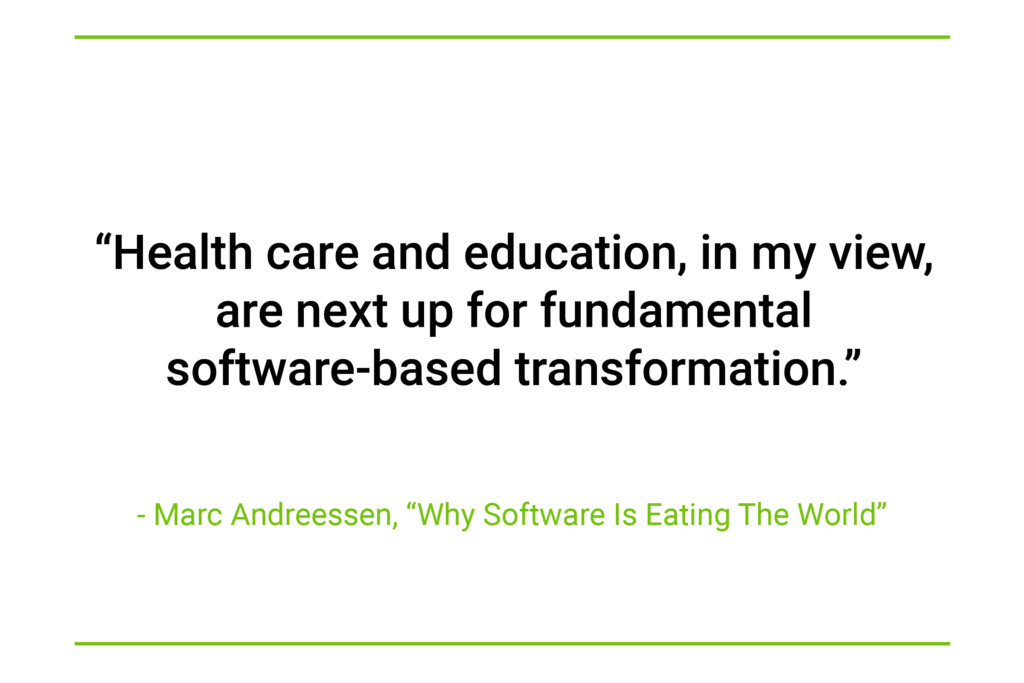
But I’m also pleased to say that Orthogonal has been a pioneer in advancing the use of software in connected medical devices, Digital Therapeutics (DTx) and Software as a Medical Device (SaMD), helping making it an increasingly prevalent and purposeful reality.
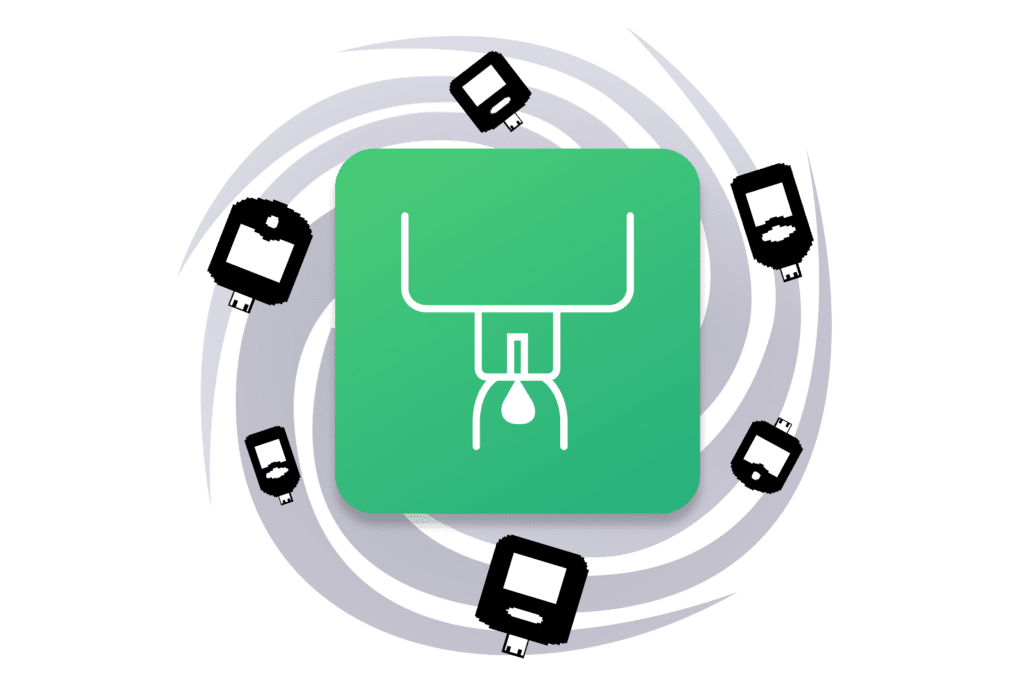
It’s also clear – to the collective credit of our industry, including many of my colleagues, clients, collaborators and competitors – that we’re all now working with a vengeance to catch up and, more to the point, striving mightily to jump to the forefront of those who see and embrace the future. Today, it’s hard to even imagine designing a medical device for consumer use without a companion smartphone app or online interface, demonstrating just how deeply software has already taken a bite into our industry.
So yes, we’re living in the future that Andreesen saw so clearly a decade ago, when he wrote:
“[T]his is a profoundly positive story for the American economy, in particular. It’s not an accident that many of the biggest recent technology companies — including Google, Amazon, eBay and more — are American companies. Our combination of great research universities, a pro-risk business culture, deep pools of innovation-seeking equity capital and reliable business and contract law is unprecedented and unparalleled in the world. . .
My own theory is that we are in the middle of a dramatic and broad technological and economic shift in which software companies are poised to take over large swathes of the economy.”
Andreessen’s point isn’t just a theory anymore; it’s a widely accepted fact. And software companies (including non-tech companies that now see software as a key differentiator) aren’t just “poised” anymore; they’ve pounced and are dining heartily.
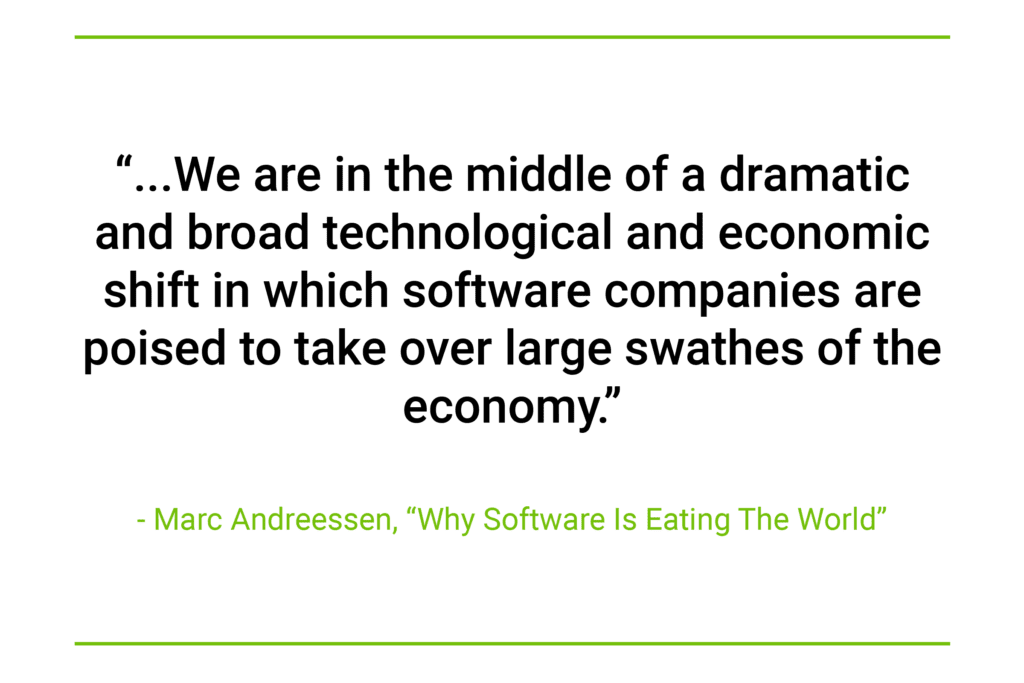
I’m bringing all of this up now partly because August 2021 is the 10th anniversary of Andreesen’s op-ed, and I think it’s worth shining a spotlight on it to give full credit where it’s due. Mostly, though, I’m focusing on his op-ed because I believe that MedTech is now at an inflection point comparable to the one that induced him to write his extraordinary piece a decade ago.
Do you agree? Or are you among the people who think such an encompassing vision is still audacious? Or perhaps fraught with potential consequences that are less than positive? More pointedly, how has the software revolution impacted your own company and career? And what does it portend for your work in five or 10 years in MedTech and digital health specifically, and healthcare and life sciences more generally?
We want to hear it all, and plan to publish many comments in a subsequent blog on this topic. If you are interested in sharing your thoughts, please fill out this short form and answer a few quick questions designed to capture your experiences and insights from the last decade.
Related Posts

Article
Case Study: Capturing Quality Images for ML Algorithm

Article
Climbing the Mountain of Regulatory Documentation for SaMD

Article
You Had Me at Validation

Article
Building & Scaling a Successful Cybersecurity Culture